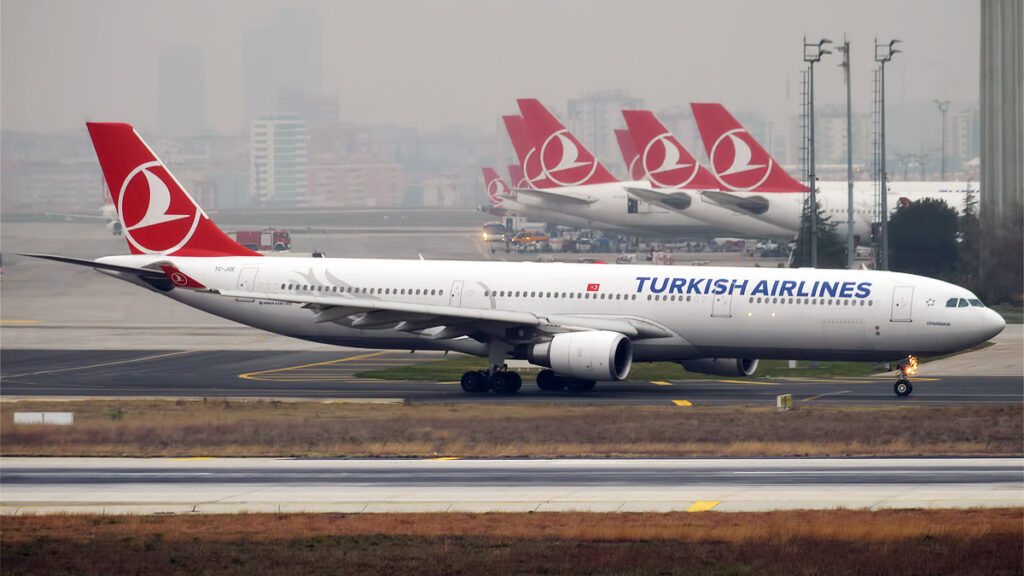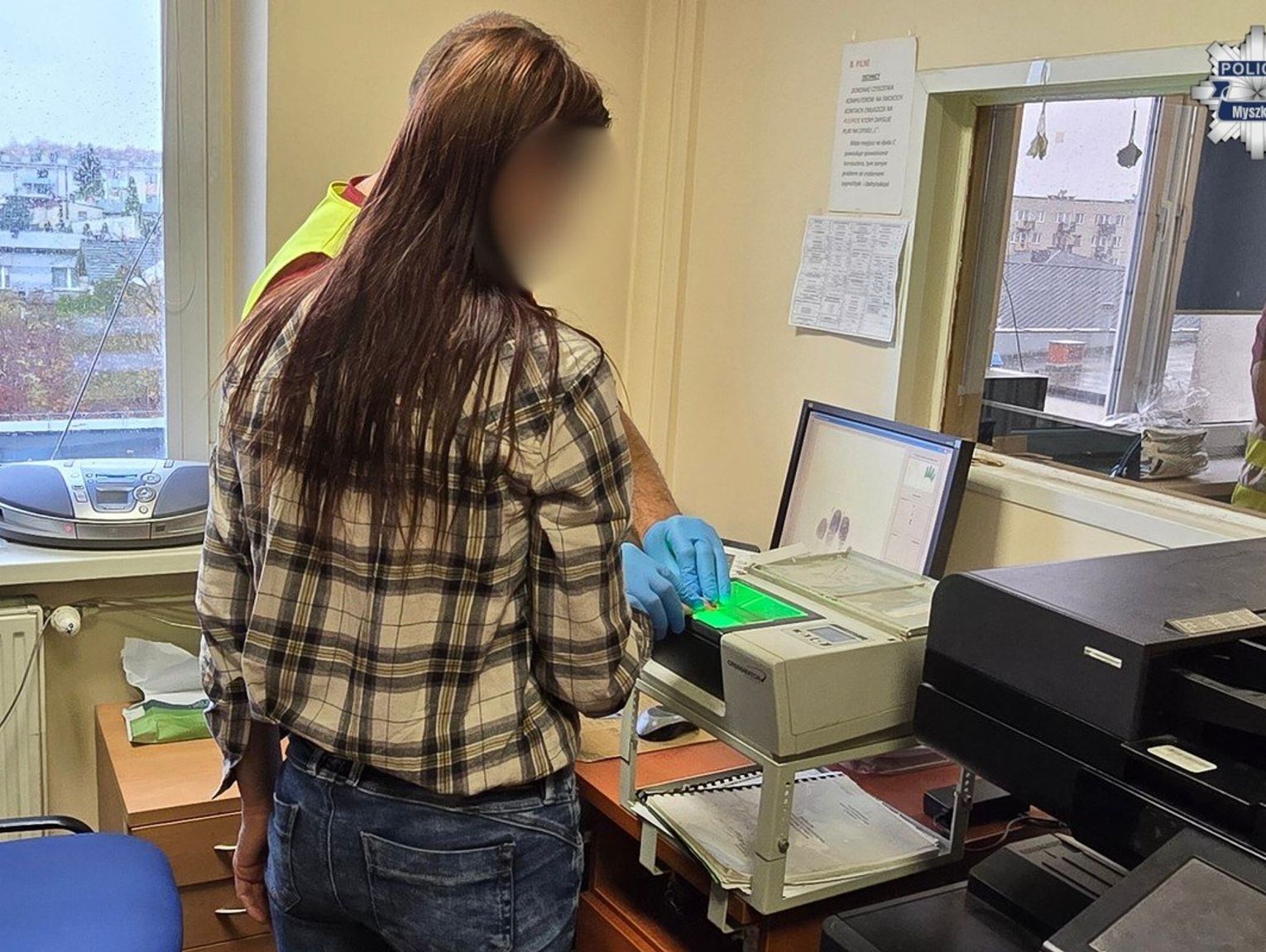
Анкара. Подтверждение Федерального бюро расследований (ФБР) показало, что Турция служила важным транзитным узлом для иностранных боевиков, пытающихся присоединиться к Исламскому государству в Ираке и Сирии (ИГИЛ). Дело касается 38-летнего Мохамеда Фати Сулимана, гражданина США, который путешествовал из международного аэропорта Орландо в аэропорт Стамбула, прежде чем отправиться к сирийской границе.
В отчете ФБР, опубликованном в Северном округе Флориды, подробно описывается, как Сулиман использовал Turkish Airlines (TK) для своего первоначального путешествия, а затем приобрел внутренний билет в аэропорт Газиантеп (GZT), город, расположенный примерно в 35 милях от Сирии. Вместо того, чтобы лететь из Стамбула в Александрию (HBE), Сулиман заплатил наличными за перелет в приграничный город, маршрут, который исторически использовался новобранцами ИГИЛ в период с 2013 по 2015 год.
 Фото: Анна Зверева из Таллина, Эстония - Turkish Airlines, TC-JOE, Airbus A330-303, CC BY-SA 2.0, https://commons.wikimedia.org/w/index.php?curid=115995460
Фото: Анна Зверева из Таллина, Эстония - Turkish Airlines, TC-JOE, Airbus A330-303, CC BY-SA 2.0, https://commons.wikimedia.org/w/index.php?curid=115995460Граница Турции как ворота в Сирию
Согласно показаниям под присягой, Сулиман признался во время интервью 2018 года в посольстве США в Хартуме, Судан, что он изучал связанные с ИГИЛ онлайн-руководства, объясняющие, как добраться до Сирии.
Инструкции советовали прилететь в Стамбул, а затем отправиться на юг в такие города, как Газиантеп, Шанлыурфа или Килис. После этого новобранцам было предложено остановиться в местных отелях и связаться с контрабандистами, которые могли бы провести их через неофициальные пограничные переходы.
С 2013 по 2015 год юго-восточные провинции Турции стали стратегическими районами размещения иностранных боевиков. Контрабандисты перевозили новобранцев с автовокзалов в сельские пункты пропуска, минуя иммиграционные проверки.
ФБР отмечает, что турецкие власти часто освобождают задержанных боевиков вскоре после ареста, что позволяет им продолжать движение в сторону Сирии.
 Демонстрация на улице в Сирии: фото-экселы
Демонстрация на улице в Сирии: фото-экселыАрест возле Килиса и депортация в Судан
14 июня 2014 года Сулиман был пойман турецкими пограничниками в провинции Килис между пограничными маркерами 501 и 502, недалеко от сторожевой башни «Восток-5», при попытке переправиться в Сирию ночью.
Он был в группе иностранных граждан, каждый из которых заплатил 50 долларов водителю за транспорт до переезда. Килис, расположенный примерно в 40 милях от Алеппо, в то время был одним из основных въездных маршрутов ИГИЛ.
Сулиман провел 10 дней в турецком заключении, где у него отпечатали отпечатки пальцев и оштрафовали на 2000 лир (около 900 долларов). Вместо того, чтобы проинформировать консульство США, турецкие власти по просьбе Сулимана депортировали его в Судан 19 июня 2014 года. Он вылетел из Газиантепа в Стамбул, а затем в Хартум на Turkish Airlines, заплатив наличными за билеты.
Попытки путешествий, связанные с терроризмом
Сулиман находился под наблюдением властей США в течение многих лет до его попытки присоединиться к ИГИЛ в 2014 году. В 2009 году он был задержан при попытке въехать в Сомали, чтобы присоединиться к «Аш-Шабаб».
В 2011 году турецкие власти не позволили ему сесть на рейс Turkish Airlines из Стамбула в Нью-Йорк.
Во время интервью консульства США в Стамбуле в 2011 году Сулиман утверждал, что страдает от биполярного расстройства, панических атак и депрессии.
Он признался, что его поездка в Сомали произошла после того, как он прекратил принимать предписанные лекарства. Несмотря на эти предупреждения, он не был отмечен, когда купил билет в один конец в Турцию в 2014 году, отказался от своего дальнейшего рейса и забронировал внутренний рейс в Газиантеп.
Политический контекст и пограничная политика Турции
В аффидевите подчеркивается, что Национальная разведывательная организация Турции (MIT), действуя по приказу правительства, способствовала перемещению иностранных боевиков в Сирию в первые годы сирийского конфликта.
Целью было ослабление режима Башара Асада, но политика вызвала напряженность в отношениях с турецкими военными, которые выступали против поддержки экстремистских группировок.
Военные офицеры, критикующие позицию правительства, были отстранены после попытки государственного переворота в июле 2016 года. Аналитики назвали переворот предлогом для чистки инакомыслия в вооруженных силах, в том числе тех, кто возражал против пограничной политики Анкары.
 Фото: Франческо Бандарин
Фото: Франческо БандаринТематическое исследование в транзитных сетях ИГИЛ
ФБР пришло к выводу, что путешествие Сулимана отражало образы многочисленных иностранных боевиков. Многие прибыли в Стамбул коммерческими рейсами, путешествовали на юг на самолете или автобусе, а затем использовали контрабандистов для пересечения сирийской границы.
От сельских дорог до оливковых рощ и речных переходов маршруты были хорошо известны среди джихадистских сетей.
Специальный агент ФБР Р. Дэвид Коллинз заявил, что Килис был ключевым сухопутным маршрутом для поездок ИГИЛ как в Сирию, так и из нее. Агент отметил, что методы, используемые Сулиманом, согласуются с аналогичными случаями иностранных боевиков, которые использовали географию и инфраструктуру Турции.
Судебное разбирательство, обвинение и приговор
В сентябре 2020 года Сулиману было предъявлено обвинение в попытке оказать материальную поддержку назначенной иностранной террористической организации, преступлении, за которое предусмотрено максимальное наказание в виде 20 лет лишения свободы.
Он был привлечен к ответственности в марте 2021 года, а в апреле 2023 года признал себя виновным в обмен на снятие прокурорами дополнительных обвинений.
В октябре 2023 года федеральный судья приговорил его к трем годам лишения свободы, после чего до конца жизни находился под надзором. Этот случай остается наглядным примером того, как ИГИЛ использовало открытые транзитные маршруты Турции во время ее пиковой территориальной экспансии в Сирии и Ираке.
Оставайтесь с нами. Следуйте за нами в социальных сетях для последних обновлений.
Присоединяйтесь к нам в Telegram Group для последних обновлений авиации. Следуйте за нами в Google News
5 стран для посещения вместо Азербайджана и Турции
Пост ФБР раскрывает роль Турции в транзите ИГИЛ в самую опасную страну в мире впервые появился на Aviation A2Z.










(p)-38925651.jpg)
